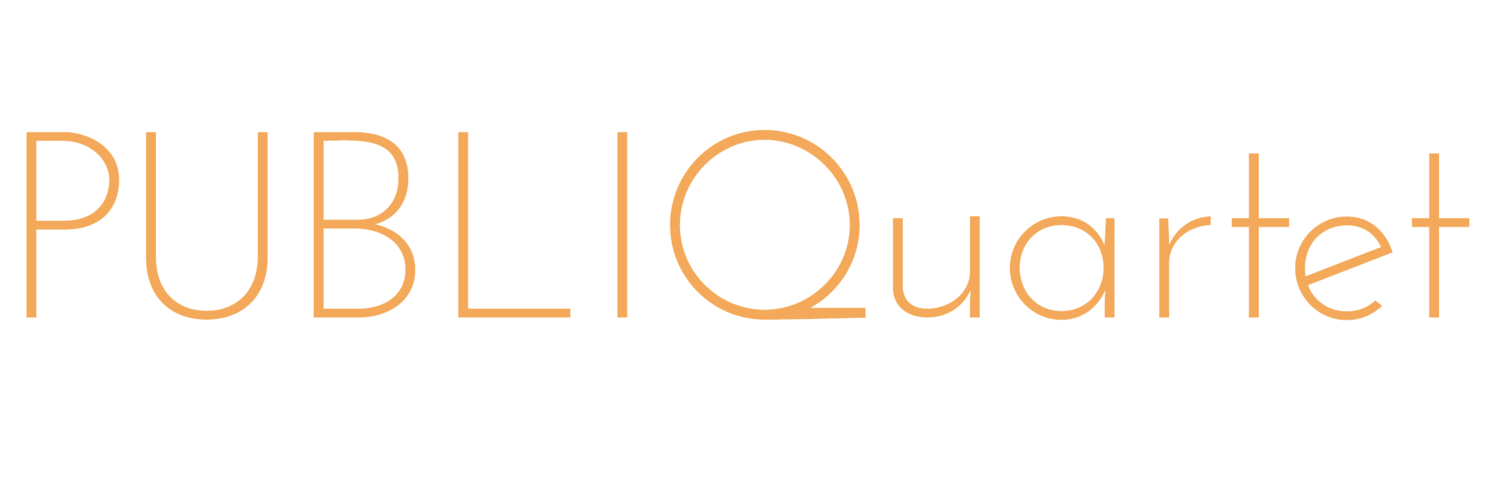Nick w/ Ronald Copes
Nick w/ Ronald CopesAs a young musician, you tend to rely mainly on instincts: feelings about the music that come from hearing and reacting to your gut; the experience of playing a lot of different styles of music that allows you to be free; perhaps of having an innate understanding of harmony and its implications on some level; of wanting, naturally, to engage in musical dialogue with your other players. As we continue to develop, we are informing our instincts with facts and meaning about the music--historical context, a closer look at the harmonic language, sources which may have inspired the creation of a work—and from this information we deepen our understanding to find a real voice in what was once just an inkling, an idea about what might be possible in the music. The main thing I’ve been realizing as a result of our first coaching’s with Joel Krosnick and Ron Copes is that all the information is right there in front of me, as long as I’m willing to look for it. As we have chosen to be re-creators of this music and speakers of this rich tradition of string quartet writing, we are learning how to find our own meaning and to tell our own story of the score. Since we’ve formed PUBLIQuartet, there has been much discussion among us to build clarity and consensus about why we are doing what we’re doing. Many possible reasons have come up, such as: “Well, I want to be able to stay current with new composers and play new works.” Or, “Staying connected to the traditional repertoire is important to me because of its boundless beauty and I wish to explore it further.” Now these explanations seem merely plain in retrospect.
PUBLIQuartet w/ Joel Krosnick
PUBLIQuartet w/ Joel KrosnickA discussion came up in our coaching with Mr. Krosnick when Curtis boldly asked for advice on how PUBLIQ can plan to move forward. As Mr. Krosnick took a moment to ponder the question, he related to his students who come through Juilliard each year and wish to pursue careers in music in this tempestuous environment, and in a concerned and candid tone said something along the lines: “what on earth are you going to do when you leave this place?!” He recognizes the world changing as rapidly as we do, and knows that the road he has paved as a member of the Juilliard String Quartet has been re-paved, and re-routed. He further posed the question to us: “Is it still important that we continue to value and find meaning in this music [of Haydn, Beethoven, Mozart, etc.]? Is it less or more important than making money and having a new car, social status or politics? Is finding beauty in what we do still important?” His conclusion was that our music will only remain significant if we continue to search and define our own perspective and beauty in these works, or any other work, for that matter. Our individual or group success will have everything to do with whether we choose to grapple with the meaning in the first place, and how diligently we work at doing so. It doesn’t matter what you play, but how you perceive and how you make connections that engages others in what you are trying to do. And as long as we keep doing that, we will exist.
PUBLIQuartet w/ Ronald Copes
PUBLIQuartet w/ Ronald CopesWe took this pep talk to the stage with us and delivered our best product to date. The concert was a success. Thanks to the illuminating guidance of our esteemed coaches, we found our voices and our dialogue with each other in the music on stage. It’s an incredible launching place for us as we move on to the study of new works this summer (which will include Brahms, Stavinsky, Mozart, and a fresh work by young composer Antonin Fajt). Our favorite comment was from an enthusiastic concertgoer who seemed to find his own new perspective: “I never knew Webern could be beautiful!” Thanks, guy. Us, too ;)
Jessie Montgomery, violin



